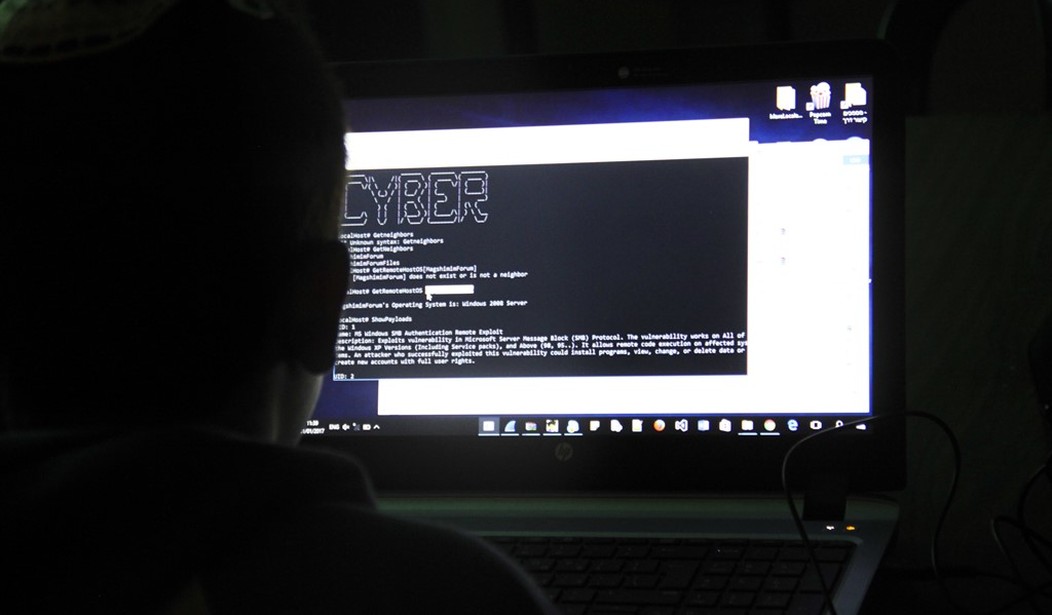As America winds down from 4 years of horrific mismanagment at the hands of the incompetent Biden administration, few issues stand as glaringly urgent as America’s cyber vulnerabilities. For President Trump, who is returning to the Oval Office amid a torrent of pressing global concerns, cybersecurity represents a battlefield that demands not only rhetoric but bold, decisive action.
It is a battlefield plagued with the potholes of bureaucratic inertia, technological lag, and perhaps most alarmingly, a talent shortage that threatens to leave the U.S. woefully unprepared for the cyber onslaughts ahead.
Microsoft, the Silicon Valley titan that holds the reins of countless federal contracts, has emerged as an unexpected cheerleader for stronger cybersecurity efforts from the Trump administration. Brad Smith, Microsoft’s president, has issued urgent calls for the U.S. government to take a tougher stance on cyberattacks emanating from Russia, China, and Iran. However, before we rush to brand Microsoft as the paladin of cybersecurity, let us not forget the tech giant's patchy track record.
Despite pocketing hundreds of millions of taxpayer dollars to bolster U.S. cyber defenses, Microsoft has been implicated in hundreds of breaches, many of them alarmingly high-profile. Critics might say this is akin to hiring a security guard who leaves the vault door ajar and then suggests installing more locks. Yet, Microsoft's calls are not without merit; the company has a point when urging the administration to tackle state-sponsored Advanced Persistent Threat (APT) groups with greater urgency.
Speaking of APTs, the danger posed by state-sponsored hacking collectives is as pervasive as it is sophisticated. Countries like Russia, China, Iran, and North Korea have turned cyber warfare into a lucrative national sport. China's Gelsemium group, for instance, has been linked to a sinister Linux backdoor called WolfsBane, a malware capable of infiltrating critical systems with stealthy precision. Meanwhile, Russia's Cozy Bear and Fancy Bear groups continue to target Western governments, private enterprises, and election systems with brazen impunity.
Recommended
Iran's oil-rich regime funds APT groups like APT33, known for its attacks on energy and infrastructure, while North Korea's Lazarus Group uses ransomware to extort millions to fund its rogue missile program. These groups operate like shadow armies, wielding tools that can cripple economies and compromise national security.
Beyond APTs, the broader cyber threat landscape reads like a dystopian script. Ransomware continues to evolve, with malicious actors increasingly targeting hospitals, schools, and municipalities. The days of "simple" data encryption are gone; today's ransomware often involves double extortion tactics, threatening to leak sensitive data unless a hefty ransom is paid.
Malware loaders like BabbleLoader add yet another layer of complexity, functioning as the Swiss Army knife of cybercrime. These loaders distribute Trojans and spyware with alarming efficiency, opening the gates for broader, more devastating attacks.
And let us not forget the murky waters of cryptocurrency-related schemes. President Trump has shown a clear fondness for digital currencies, but the blockchain boom has become a breeding ground for Bitcoin phishing scams and illegal activity. Bitcoin ransom demands, fraudulent Initial Coin Offerings (ICOs), and crypto-mining malware are just a few of the plagues haunting this digital frontier.
As if this litany of threats weren’t enough, America faces a glaring shortage of skilled cybersecurity personnel. Current estimates suggest that the U.S. is short by hundreds of thousands of qualified cyber experts, a gap that is as demoralizing as it is dangerous. Without the human capital to defend our digital borders, all the policy changes and technological advancements in the world may be rendered moot.
Compounding the issue is the looming end of support for Windows 10 in the coming year. This transition could result in a wave of Blue Screen of Death errors across millions of devices, creating a fertile hunting ground for cybercriminals.
A patchwork of outdated systems, ill-prepared for the next wave of attacks, could lead to catastrophic failures in critical infrastructure, from energy grids to financial networks.
But while the picture may seem bleak, hope is not lost. The Trump administration has an opportunity—perhaps even an obligation—to spearhead a cybersecurity renaissance.
Key reforms are needed at agencies like the Cybersecurity and Infrastructure Security Agency (CISA) and the National Security Agency (NSA), where streamlined processes and better inter-agency collaboration could help counteract the bureaucratic red tape that often stifles progress.
Investments in public-private partnerships will also be critical. Despite its flaws, Microsoft’s advocacy highlights the importance of leveraging expertise from the private sector.
The administration must encourage more collaboration between tech giants and government bodies, ensuring that cybersecurity innovation keeps pace with emerging threats.
Furthermore, addressing the talent gap will require a long-term strategy. This means investing in education and training programs to cultivate the next generation of cybersecurity professionals. Scholarships, apprenticeships, and fast-tracked certifications could help bridge the skills deficit and fortify America’s digital workforce.
Yes, the challenges ahead are daunting. The international cyber threat landscape is more dangerous than ever, especially as the unregulated AI world continues to grow and America’s digital defenses remain riddled with vulnerabilities. But the fight is far from over.
With bold leadership, strategic investment, and a willingness to embrace both innovation and accountability, the Trump administration has a chance to not only strengthen American cybersecurity but set a global standard for resilience.
The battle for digital dominance will not be won overnight. It will require grit, determination, and a clear vision for the future. But in the spirit of optimism, let us dare to believe that America can rise to the occasion. After all, it is not the size of the breach that defines us, but the strength of our response.
























Join the conversation as a VIP Member